I've been traversing the desolate landscapes of Death Stranding for what feels like an eternity now. From America's rugged terrain to Mexico's varied topography, and now Australia's unforgiving outback in 2025's expanded experience. My boots have worn thin countless times, my calves permanently etched with the memory of a thousand hills climbed. And yet, despite all the vehicular options the game provides, I can't help but feel that something fundamental is lost when I abandon my feet for wheels.
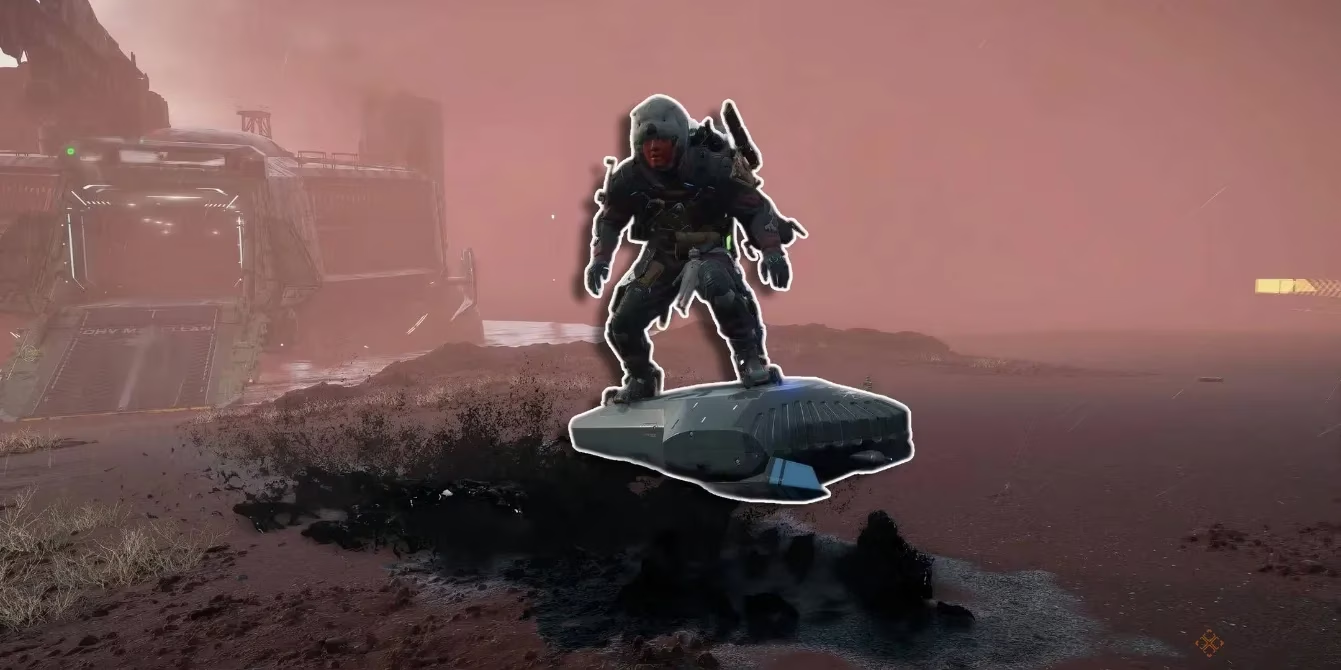
There's something almost sacrilegious about zipping across these meticulously crafted environments in a reverse trike or 4x4. Sure, bombing down a hill in that classic car I won from the racetrack I somehow built feels momentarily exhilarating. Even the monorail system (which, let's be honest, feels like Kojima flexing his infrastructure fetish) offers a certain satisfaction. But deep down, it just doesn't feel right.
The Soul of the Journey
Death Stranding, at its core, isn't about getting from point A to point B efficiently. It's about the journey itself - the struggle, the planning, the minute-by-minute decision making. When I'm on foot, every single step matters. Every rock, stream, and gradient becomes a puzzle to solve rather than an obstacle to ignore.
The game's brilliance lies in how it forces you to engage with the environment in ways no other game does. That humble stream that would be a mere graphical detail in other games? In Death Stranding, it's a potential disaster waiting to happen if you misjudge your footing. That gentle slope? A death trap if you're carrying too much cargo and lose your balance.
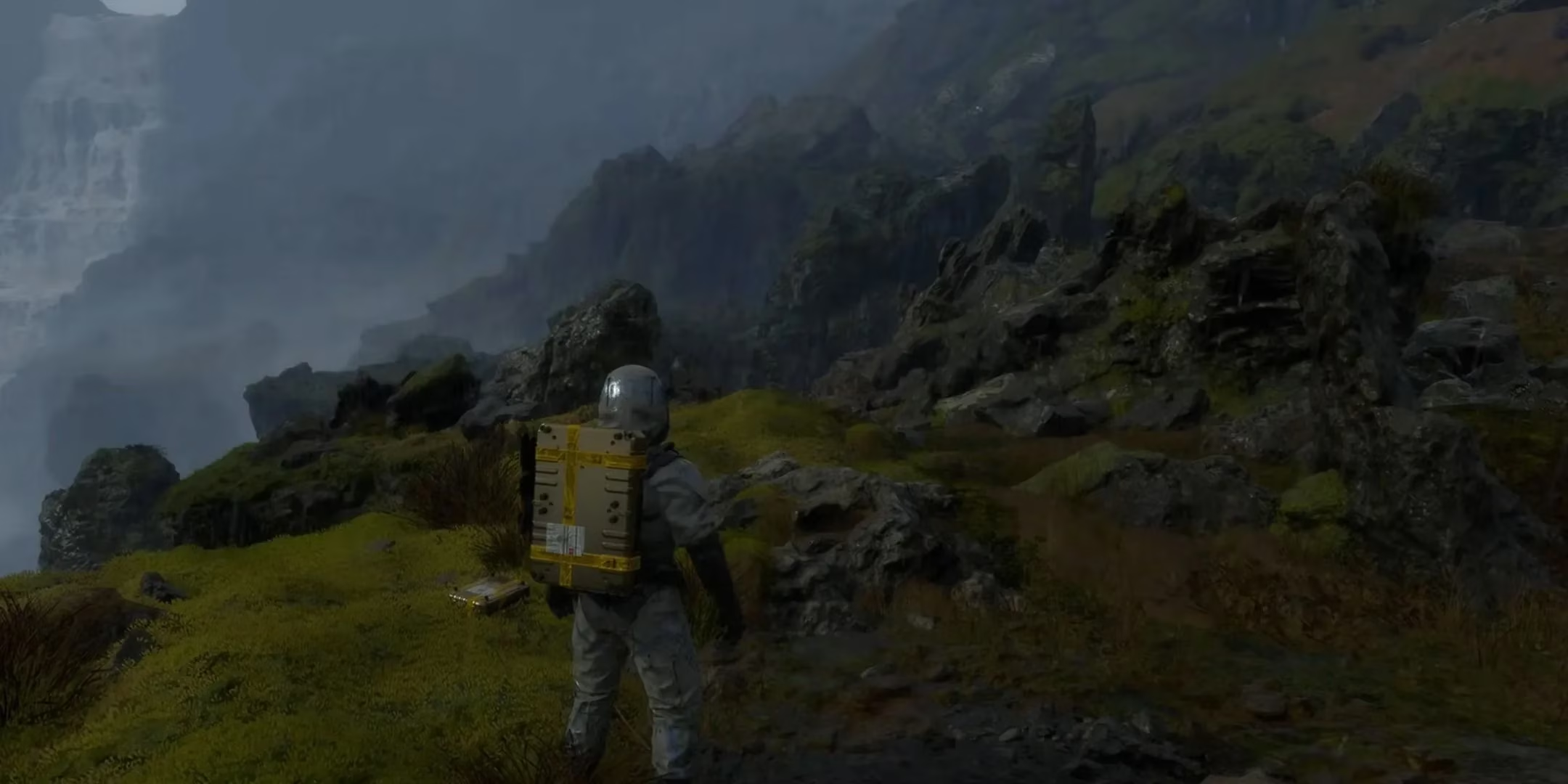
I've developed a relationship with this digital landscape that feels almost personal. I know which paths to avoid when it's raining, which ridges offer the safest passage, which valleys hide the most dangerous BTs. This intimate knowledge comes from vulnerability - from being a human traversing an inhospitable world with nothing but your wits and a few tools.
The Vehicle Problem
Then along comes a truck, and suddenly it's like I'm playing a completely different game. All that careful planning and environmental awareness? Out the window. That precarious balance of weight distribution and cargo management? Irrelevant. The BTs that once inspired genuine dread? Just minor inconveniences to drive around.
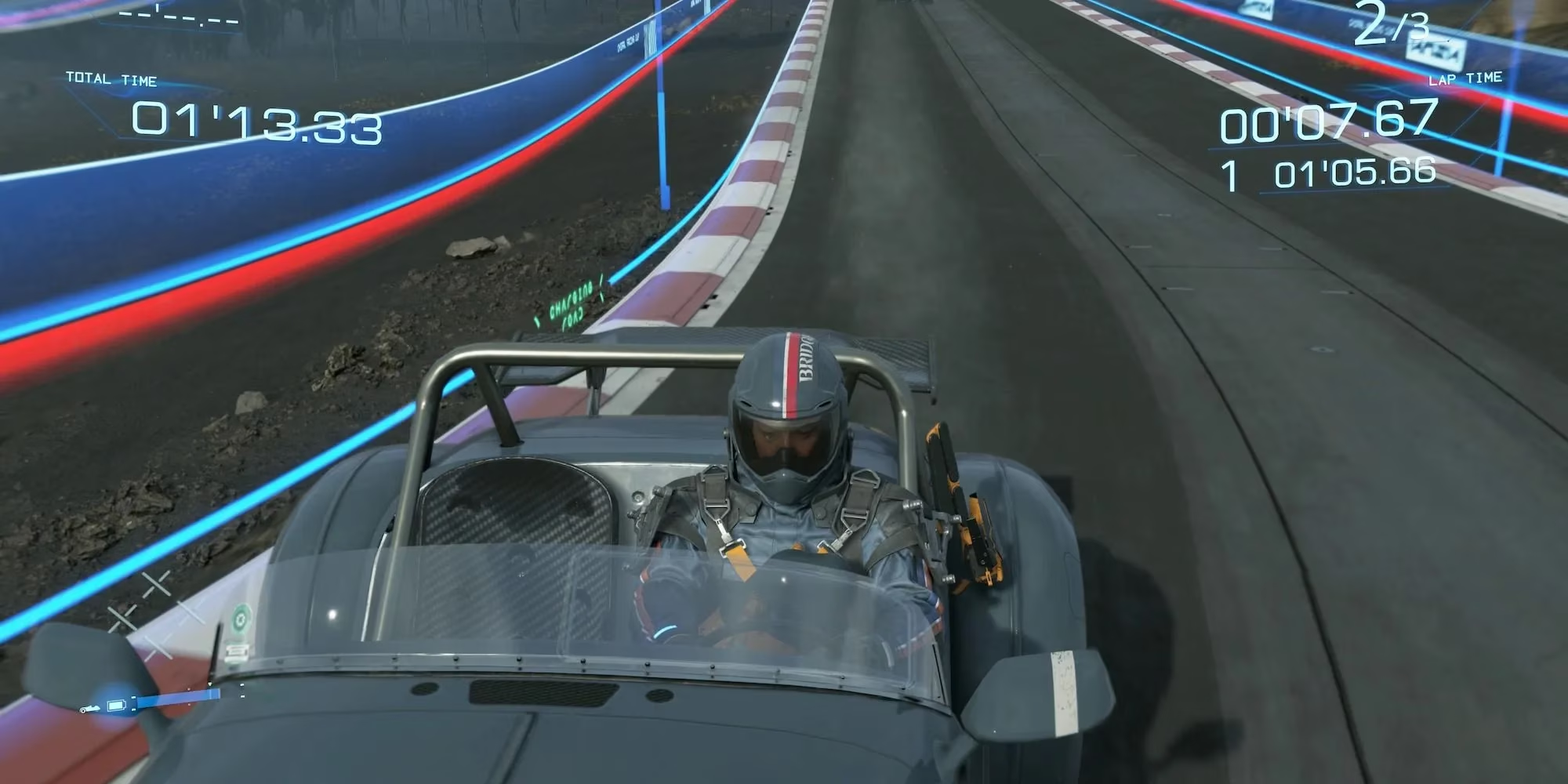
Don't get me wrong - I understand why vehicles exist in Death Stranding. After spending 20+ hours connecting America's fractured cities, the thought of backtracking on foot to complete side missions would be enough to make anyone quit. Kojima may be known for his unconventional design choices, but even he wouldn't be that cruel. Vehicles are the spoonful of sugar that makes the medicine of completionism go down.
But here's the rub - they fundamentally undermine what makes Death Stranding special in the first place. The game is built around the strand mechanic, the idea that players help each other by leaving behind useful structures. I still remember the first time I found a bridge another player had built exactly where I needed it, or the timefall shelter that saved my precious cargo during an unexpected storm. These moments created a sense of connection in a game about reconnecting a fractured world.
The Deskilling Effect
When I'm in a vehicle, I'm not just speeding up travel - I'm bypassing the very mechanics that make Death Stranding unique. I'm no longer planning routes carefully, managing my stamina, or maintaining my balance. I'm just... driving. And honestly, Death Stranding is a pretty mediocre driving game.
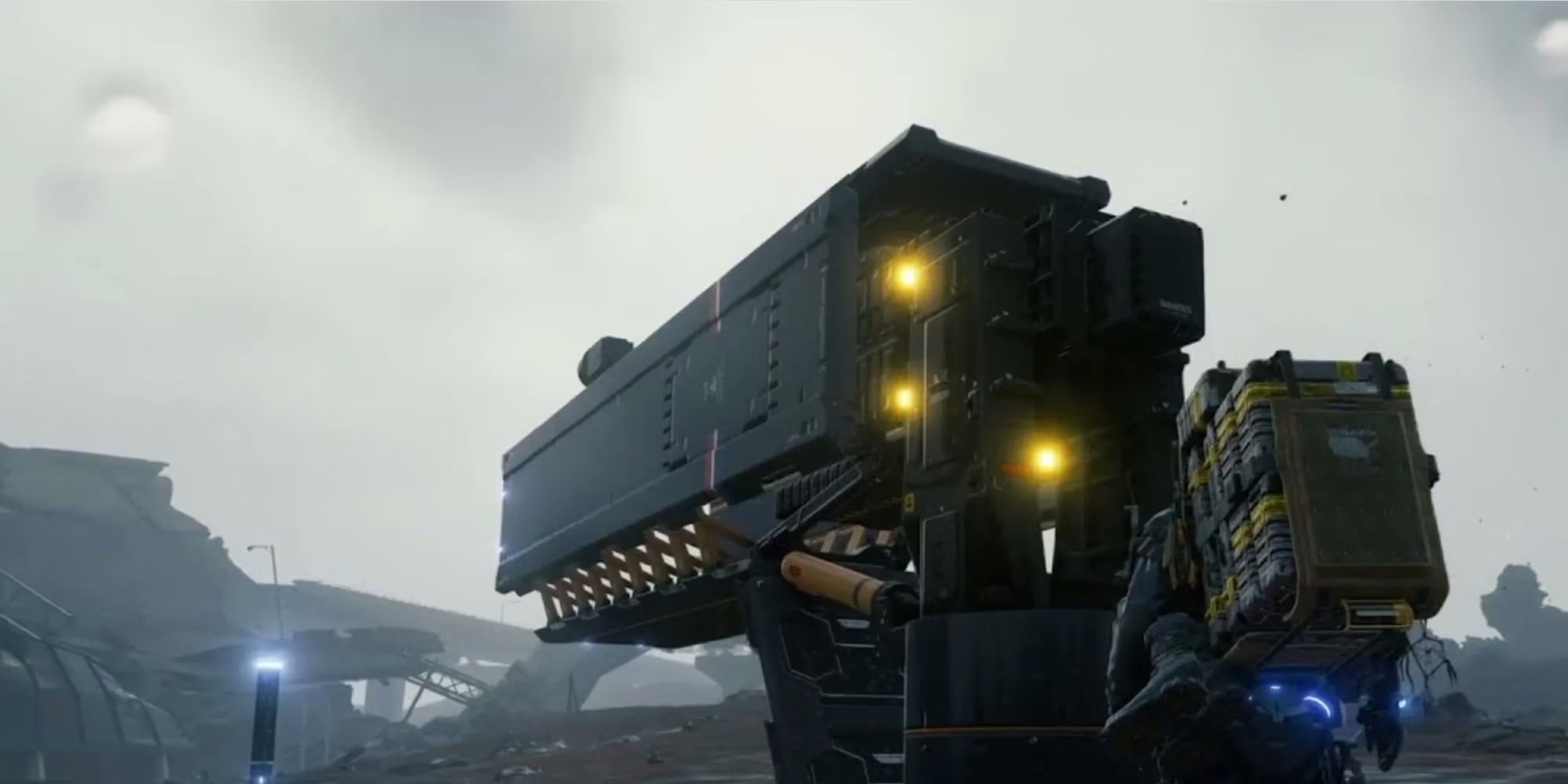
What's worse is that vehicles actually deskill you as a player. After spending too long behind the wheel of a truck, I've found myself forgetting the basic survival instincts I developed during my on-foot journeys. I forget to grab my backpack straps when traversing steep terrain. I misjudge river crossings. I pack inefficiently. It's like my character has forgotten how to be a porter.
The Necessary Evil
Despite my complaints, I can't argue that vehicles should be removed from Death Stranding. They serve a purpose, and that purpose is to prevent player burnout. Without them, the game's post-story content would be an exercise in masochism rather than enjoyment.

Most games offer progression through skill trees, new abilities, or better equipment. Death Stranding does this too - the various exoskeletons and specialized equipment you unlock enhance your capabilities without fundamentally changing how you interact with the world. But vehicles don't enhance - they replace. They substitute a rich, complex system of movement and environmental interaction with... well, driving.
Finding Balance
In my current playthrough of the 2025 expansion, I've adopted a personal rule: no vehicles for primary missions, vehicles allowed for backtracking and side content. This compromise allows me to experience the game as I believe it was meant to be experienced, while not punishing me for wanting to complete everything.
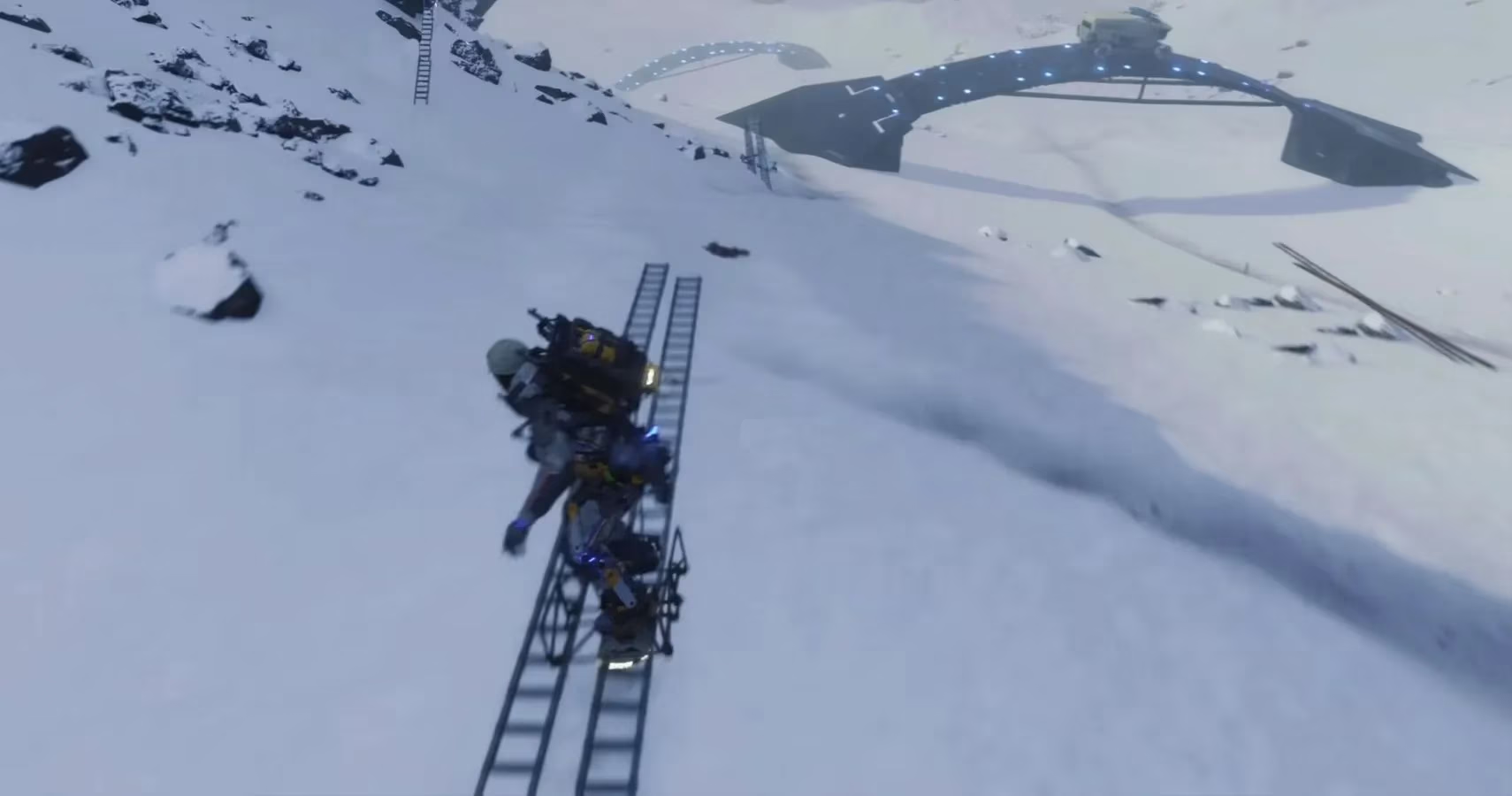
I've found that this approach preserves what I love about Death Stranding - the connection to the landscape, the sense of achievement from overcoming natural obstacles, the thrill of finding the perfect path through treacherous terrain. And when I do eventually hop in a truck to deliver my fifteenth pizza to some reclusive prepper, I don't feel like I'm cheating the game's systems.
Perhaps the tension between walking and driving in Death Stranding isn't a design flaw but a deliberate choice - a representation of our modern dilemma between convenience and connection, between efficiency and experience. In a game filled with metaphors and symbolism, it wouldn't be a stretch to see this as yet another layer of meaning.
Or maybe I'm just overthinking it. After all, sometimes a truck is just a truck, and my poor virtual feet could use a break. As they say, "the journey of a thousand miles begins with a single step" - but nobody said anything about having to take all thousand miles on foot. Sometimes you just gotta roll with it, you know what I mean?
But I still can't shake the feeling that every time I start an engine in Death Stranding, I'm missing the point somehow. What do you think - are vehicles a necessary compromise or do they undermine what makes the game special? I've been hiking this particular mental trail for years now, and I'm still not sure I've reached a destination.
